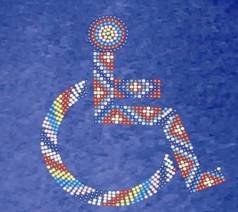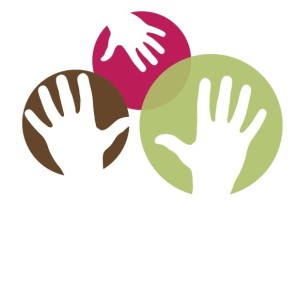Disability is a natural part of the human experience… Improving educational results for children with disabilities is an essential element of our national policy of ensuring equality of opportunity, full participation, independent living, and economic self-sufficiency for individuals with disabilities.
~U.S. Congress, Finding 1 of the Individuals with Disabilities Education Act, Public Law 108–446
 This issue of the Buzz spotlights three resources you may find appropriate for sharing with parents, family members, and professionals who are new to the disability journey that begins when a child is born with or diagnosed at some point as having a disability. What to do? Who to call or turn to for guidance?
This issue of the Buzz spotlights three resources you may find appropriate for sharing with parents, family members, and professionals who are new to the disability journey that begins when a child is born with or diagnosed at some point as having a disability. What to do? Who to call or turn to for guidance?
The issue also shares information fresh from the U.S. Department of Education. Finally, in recognition of Black History Month, we end with an article that takes a fascinating look at African Americans with disabilities who have marked our history in significant ways.
Our best to you all,
The CPIR Team | Debra, Debi, Lisa, Jessica, and Myriam
___________________________
First Steps in the Disability Journey
Navigating Life with a Child who has Special Needs
The subtitle of this January 2019 article in Exceptional Parent is “finding more joy on the journey.” The article focuses on helping parents get organized, build their support team, make time for self-care, and seek professional therapy when necessary.
 New to Disability?
New to Disability?
Just updated, this CPIR page gives parents a quick roadmap to the world of disability resources available in the U.S. and on the CPIR Hub that they may find handy.
For Professionals New to Disability
What about the professionals who work with this newly diagnosed baby, toddler, preschooler, or school-aged student? Perhaps they, too, are new to disability. Also just updated, this CPIR resource page is easy for parents and Parent Centers to share with child care providers, early childhood educators, afterschool programs, and teachers.
Guidance from OSERS
Guidance/Policy Letters
The U.S. Department of Education released four letters responding to requests for guidance on January 29. The letters address:
–students with disabilities in correctional facilities;
–discipline procedures;
–children with disabilities placed in private school by their parents; and
–response to intervention.
In Honor of Black History Month
Highlighting African Americans with Disabilities
This article from Respect Ability is a fascinating combination of information about African Americans with disabilities in today’s world and those from our past who have marked history in significant ways.
The CPIR hopes that you’ve found useful and relevant resources listed in this month’s Buzz from the Hub. Please feel free to write to the editor, Lisa Küpper, at lkupper@fhi360.org to suggest the types of resources you’d like to see in the future. CPIR is listening! Your input is extremely valuable to helping us to craft newsletters that support your work with families.
Debra, Debi, Myriam, Jessica, and Lisa
The CPIR Team
____________________________________________________________
 This eNewsletter from the CPIR is copyright-free.
This eNewsletter from the CPIR is copyright-free.
We encourage you to share it with others.
Center for Parent Information and Resources
c/o SPAN, Inc.
35 Halsey St., Fourth Floor
Newark, NJ 07102
https://www.parentcenterhub.org
Subscribe to the Buzz from the Hub.
See past issues of the Buzz.
____________________________________________________________
Publication of this eNewsletter is made possible through Cooperative Agreement H328R130014 between OSEP and the Statewide Parent Advocacy Network (SPAN). The contents do not necessarily reflect the views or policies of the Department of Education, nor does mention of trade names, commercial products, or organizations imply endorsement by the U.S. Government or by the Center for Parent Information and Resources.


